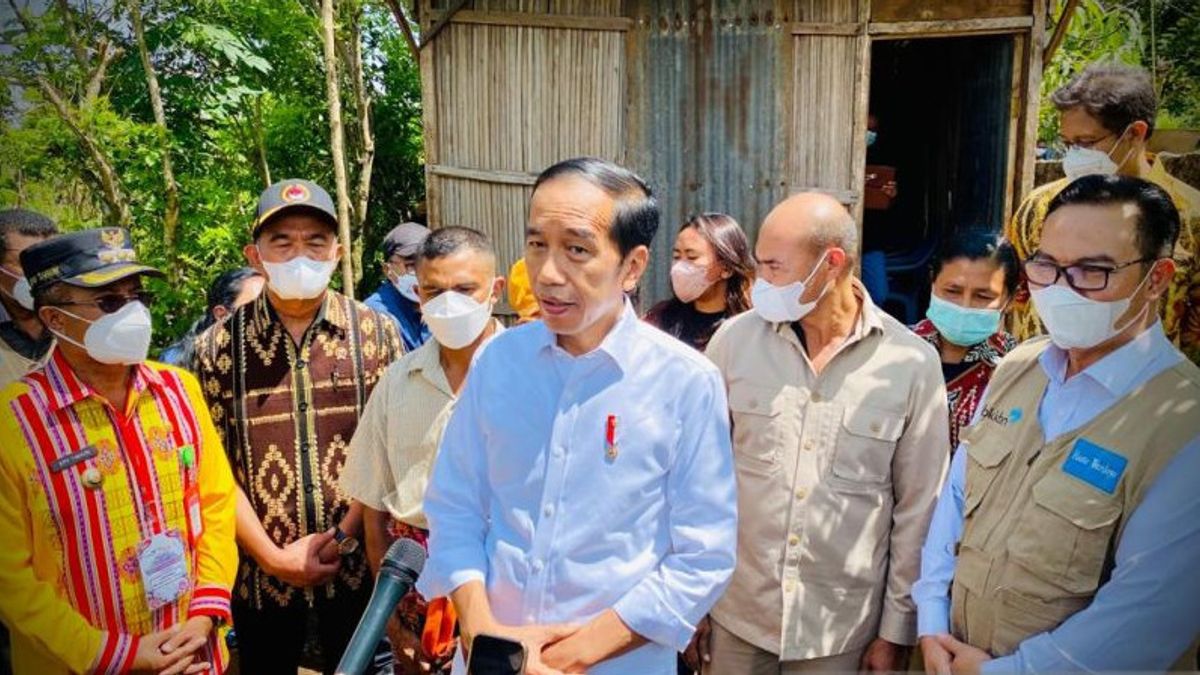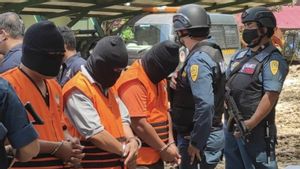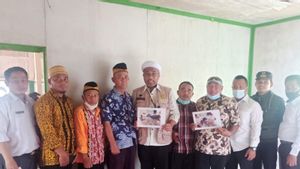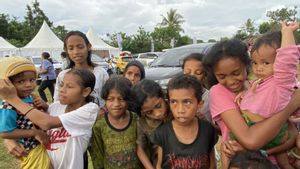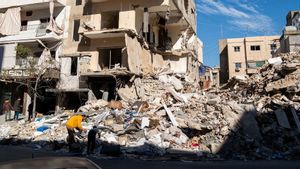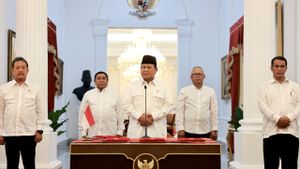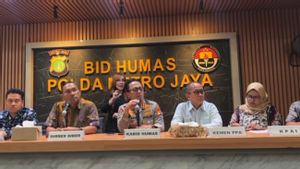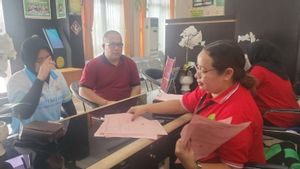NTT - President Joko Widodo (Jokowi) said local governments must work hard to meet the target of reducing the prevalence of stunting (tengkes) below 14 percent by 2024.
"I ask all governors, regents, and mayors throughout the country. I will also convey the same thing that the 14 percent target should not be missed, it must be achieved," said the President while reviewing the program to accelerate the reduction of tengkes in Kesetnana Village, Timor Regency. South Central (TTS), East Nusa Tenggara (NTT), which is being monitored virtually, Thursday, March 24.
The President appreciated the implementation of activities by the National Population and Family Planning Agency (BKKBN).
According to him, activities related to tengkes such as assisting the bride and groom before marriage.
"Not all brides know, even though they have a lot of money. If they don't know what to do, prepare, that could be wrong too," he said, as reported by Antara.
The Head of State said that the Government would also intervene in child nutrition, housing conditions, and water availability.
This intervention needs to be carried out in an integrated manner by all parties so that the 14 percent target by 2024 is achieved.
VOIR éGALEMENT:
On the same occasion, Head of the BKKBN Hasto Wardoyo explained that President Jokowi directly conveyed the problem regarding the health center in the Province of East Nusa Tenggara (NTT), especially in the South Central Timor Regency.
Hasto hopes that the presence of the President will motivate him to work harder in reducing the number of tengkes in NTT.
"We hope that the presence of the President will be a motivation for all of us in NTT and also for the team to accelerate stunting reduction to do more, work even harder," said Hasto.
Based on BKKBN data, Kesetnana Village is a general description of 278 villages in TTS Regency with a high prevalence of tengkes.
In fact, the prevalence of tengkes in TTS District according to the Indonesian Nutritional Status Study (SSGI) reached 48.3 percent, the highest in NTT and even in Indonesia.
The English, Chinese, Japanese, Arabic, and French versions are automatically generated by the AI. So there may still be inaccuracies in translating, please always see Indonesian as our main language. (system supported by DigitalSiber.id)
